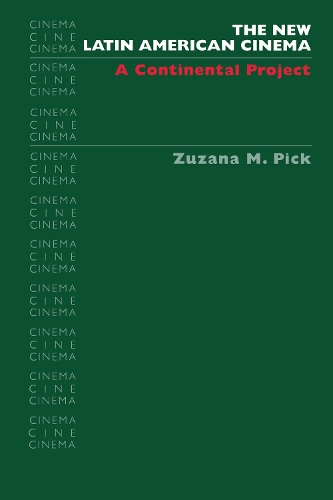
The New Latin American Cinema: A Continental Project(Texas Film and Media Studies)
Series: Texas Film and Media Studies
During the 1967 festival of Latin American Cinema in Viña del Mar, Chile, a group of filmmakers who wanted to use film as an instrument of social awareness and change formed the New Latin American Cinema. Nearly three decades later, the New Cinema has produced an impressive body of films, critical essays, and manifestos that uses social theory to inform filmmaking practices. This book explores th
NaN
VOLUME
English
Paperback

During the 1967 festival of Latin American Cinema in Viña del Mar, Chile, a group of filmmakers who wanted to use film as an instrument of social awareness and change formed the New Latin American Cinema. Nearly three decades later, the New Cinema has produced an impressive body of films, critical essays, and manifestos that uses social theory to inform filmmaking practices. This book explores the institutional and aesthetic foundations of the New Latin American Cinema. Zuzana Pick maps out six areas of inquiry—history, authorship, gender, popular cinema, ethnicity, and exile—and explores them through detailed discussions of nearly twenty films and their makers, including Camila (María Luisa Bemberg), The Guns (Ruy Guerra), and Frida (Paul Leduc). These investigations document how the New Latin American Cinema has used film as a tool to change society, to transform national expressions, to support international differences, and to assert regional autonomy.Table of Contents: Preface and Acknowledgments Introduction. The New Latin American Cinema: A Continental Project 1. Convergences and Divergences History and Institutions Pioneers and Early Manifestations Birth of a Movement State Intervention and Growth Turning Point and Consolidation 2. Creativity and Social Intervention Authorship and Cultural Militancy The Discovery of Self and Other: The Brickmakers The Authority of Daily Life: Up to a Point The Collective and the Nation: The Hour of the Furnaces 3. Gendered Identities and Femininity Women Filmmakers and Representations of Gender Machismo and Gender: A Man, When He Is a Man Experiences of Femininity: Mujer transparente Reviewing Women’s History: Camila Identity and Representation: Frida: Naturaleza viva 4. Popular Memory and the Power of Address Popular Cinema and Social Class Social Inquiry and Los inundados The Sertao and Cinema Nôvo: The Guns Popular Memory and The Courage of the People 5. Cultural Difference and Representation Ethnicity and Mestizaje The Dialectics of Race and Class: One Way or Another Metaphor and Difference: Iracema The Aesthetics of Carnival: Quilombo Immigration and Identity: Gaijin: The Road to Liberty 6. Exile and Displacement Exile: Discourse and Representation The Politics of the Personal: Unfinished Diary Spectacle and the Displaced Body: Tangos: The Exile of Gardel Phantasmagoria and Displacement: The Three Crowns of the Sailor Conclusion. The New Latin American Cinema: A Modernist Critique of Modernity Notes Bibliography Index
Price Comparison [India]
In This Series
Bestseller Manga
Trending NEWS




















